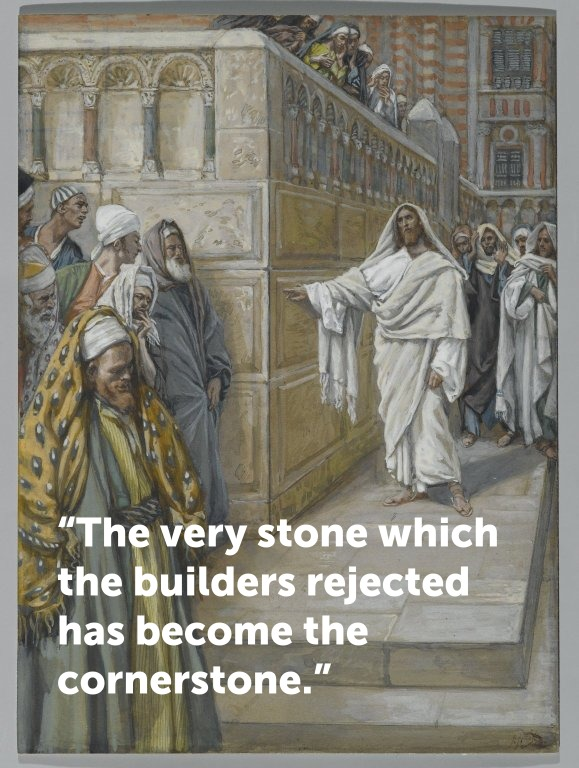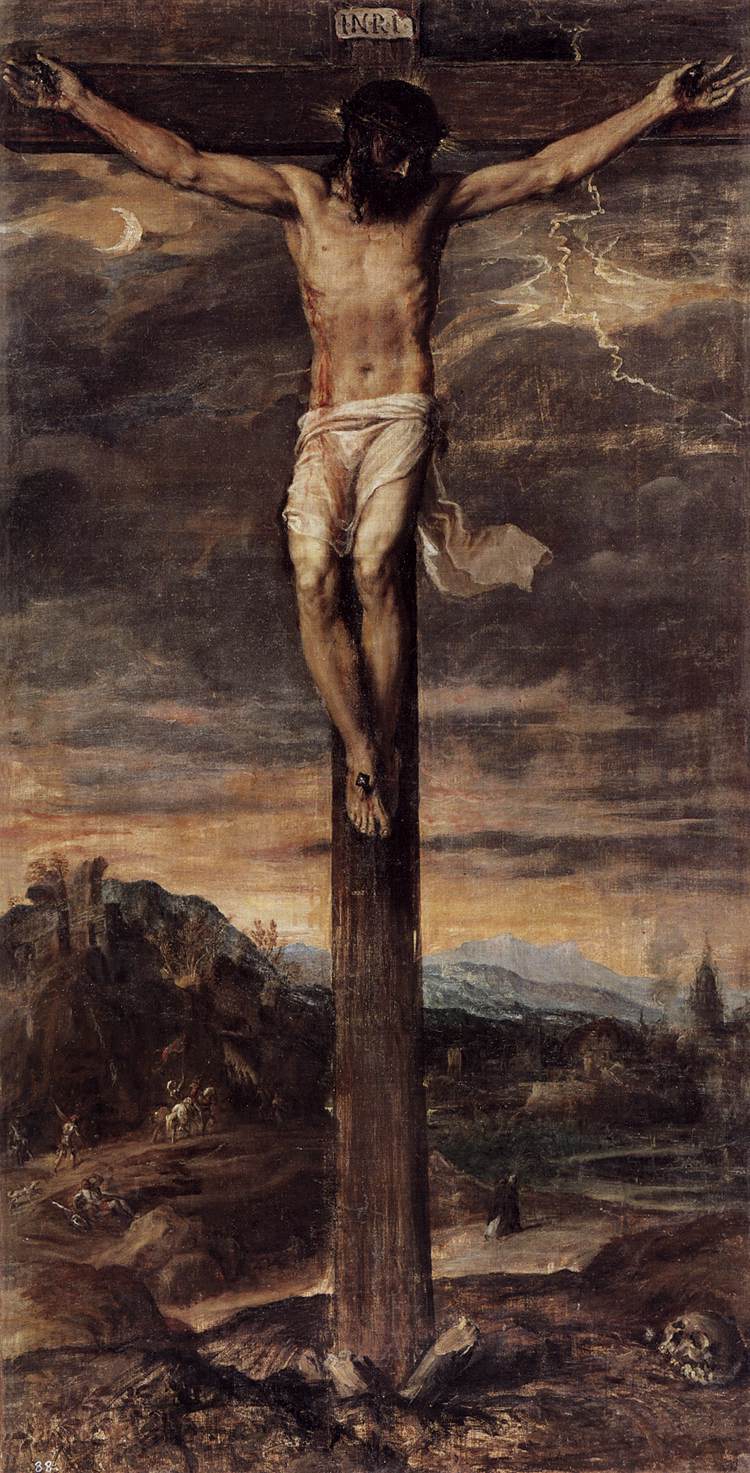This coming Sunday is the Twenty-Seventh Sunday in Ordinary Time. To help you prepare to enter more deeply into Matthew 21:33–46 at worship, here is an excerpt from St. Thomas Aquinas’ Commentary on the Gospel of St. Matthew.
42 Jesus said to them, “Have you never read in the Scriptures: ‘The very stone which the builders rejected has become the cornerstone; this was the Lord’s doing, and it is marvelous in our eyes’? 43 Therefore I tell you, the kingdom of God will be taken away from you and given to a nation producing the fruits of it. 44 And he who falls on this stone will be broken to pieces; but when it falls on any one, it will crush him.” 45 When the chief priests and the Pharisees heard his parables, they perceived that he was speaking about them. 46 But when they tried to arrest him, they feared the multitudes, because they held him to be a prophet.[1]
Jesus saith to them. Here, the confirmation of the judgment is related. Firstly, a passage of Scripture is cited; and secondly, its explanation is related. He says, Have you never read in the Scriptures (this is found in Psalm 117:22): The stone which the builders rejected, the same is become the head of the corner? And He points out four things. Firstly, He points out their reprobation; secondly, He points out their dignity; thirdly, He points out the reason for their reprobation; and fourthly, He points out their admiration. He says, The stone, etc. The stone is Christ, who is called a stone based upon many similitudes. “Behold I will lay a stone in the foundations of Sion, a corner stone,” etc., (Is. 28:16). The builders are the Apostles. Let every man take heed how he builds. Hence, that rock, which they rejected, meaning which they cast away, the same is become, meaning is constituted, the head of the corner, meaning the head of the Jews and the Gentiles. Hence, He was made the head of the Church. But they could say: He made Himself the head; for that reason, He says: By the Lord this has been done. “The right hand of the Lord hath wrought strength” (Ps. 117:16). And what sort of exaltation is this? And it is wonderful in our eyes; “Behold ye among the nations, and see: wonder, and be astonished: for a work is done in your days, which no man will believe when it shall be told” (Hab. 1:5). Their dignity was so great that it could only have been produced through the grace of God. “By grace you are saved through Christ” (Eph. 2:8). Afterwards, He expounds the passage; and He makes two conclusions. Firstly, He expounds what was said in the parable; and secondly, He expounds what was said in the passage. It is said, therefore, Therefore I say to you that the kingdom of God shall be taken from you, meaning Sacred Scripture, because you will lose the understanding of Sacred Scripture. “He hath blinded their eyes and hardened their heart, that they should not see with their eyes, nor understand with their heart and be converted: and I should heal them” (Jn. 12:40). Or, you will lose your authority over the Church of the faithful, because their glory has been transferred to others. And shall be given to a nation yielding the fruits thereof. “Behold I have given him for a witness to the people, for a leader and a master to the Gentiles. Behold thou shalt call a nation, which thou knewest not: and the nations that knew not thee shall run to thee” (Is. 55:4–5). But how shall it be given to them? Above, it was said that He let it out, here, however, that it is given: because when it does not yield fruit, it is said to be let out, or rented; but when it is given, then it bears fruit. He indicates a twofold punishment, And whosoever shall fall on this stone shall be broken. It is expounded, according to Jerome, as follows: He falls upon a rock, meaning Christ, who holds the faith from Him, that is to say, from Christ, but falls by sin because he acts against Him. The reason why sinners fall is because they do not have charity. But on whomsoever it shall fall, it shall grind him to powder. Christ, however, falls upon unbelievers. There is this difference, namely, that when a vessel falls upon a rock, the vessel is not broken because of the rock, but because of the way that it fell, inasmuch as it fell from a greater height; but when a rock falls upon a vessel, it breaks it according to the weight of the rock. So a man, when he falls upon a rock, which is Christ, then he is broken according to the greatness of the sin; but when he becomes an unbeliever, he is completely crushed. Or someone falls upon a rock when he perishes by his own free choice; but then a rock, in fact, falls upon him, when Christ punishes him, and then the whole man is crushed. “I shall beat them as small as the dust before the wind” (Ps. 17:43). The time of wickedness follows, And seeking to lay hands on him, they feared the multitudes, because they held him as a prophet. And the meaning of these words is clear.[2]
To dig deeper in your own devotional time, contemplate these verses in the Verbum Bible Study software. Or, if you don’t yet own it, request St. Thomas Aquinas’ Commentary on the Gospel of St. Matthew—available in Verbum.
[1] The Holy Bible. (2006). (Revised Standard Version; Second Catholic Edition, Mt 21:42–46). San Francisco: Ignatius Press.
[2] Thomas Aquinas. (2012). Commentary on the Gospel of St. Matthew. (P. M. Kimball, Trans.) (pp. 696–706). Dolorosa Press.






Hi
I had a dream, I dreamt of a building foundation and there was also a stone at the foundation that was not used. I picked up the stone and left with it. what does this dream mean